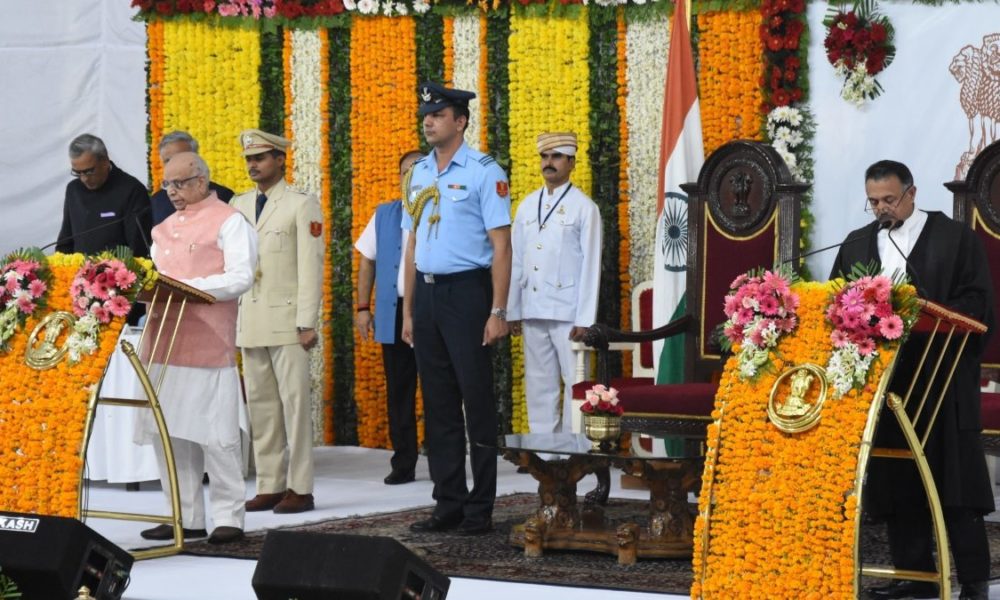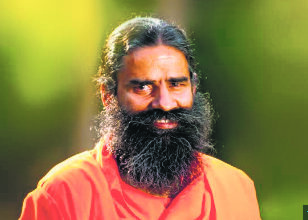The Governor’s role und e r t h e Constitution has historically remained a controversial subject. The participation of such nominal heads in executive matters crucially undermines electoral democracy. Recently, the actions of Governor Jagdeep Dhankar of West Bengal and Governor Lalji Tandon of Madhya Pradesh implores one to revisit the topic. Both appear to be undermining the role and importance accorded to the council of ministers under the Constitution. Governor Dhankar frequently ignores the aid and advice of his council of ministers, and pontificates on all matters ranging from law and order to health to education, much to the chagrin of the elected government there. He believes himself to be a repository of executive power as a “constitutional head”, a cryptic term that he uses for justifying actions that are outright political.
Governor Tandon, on the other hand, has already established a precedent of working without a council of ministers–last month, he promulgated (passed) two ordinances on the advice of Chief Minister Shivraj Singh Chouhan alone, when there was neither a cabinet nor a council of ministers in place, to advise him. One Governor disregards the advice of his council of ministers, and the other believes he can function without one. While this raises a larger question on the systematic undoing of democratic structures, this piece attempts to clarify the legal, constitutional position on two central issues–the Governor’s position as a nominal head, and the Governor’s powers vis-à-vis the council of ministers, under the Constitution. Since the early days of the republic, the dismissal of state governments and imposition of President’s rule under Article 356 based on a Governor’s report, citing, ostensibly, “the failure of constitutional machinery in the state” was a common occurrence. Fortunately for us, the times have changed since.
The Supreme Court, in several seminal cases like UNR Rao (1971), Samsher Singh (1974), SR Bommai (1994), has laid down the law on the importance of the cabinet system, and the role of the Governor, and a brief restatement is appositeIn Samsher Singh’s case, the Supreme Court held that the Governor is bound by the aid and advice of the council of ministers in the exercise of executive powers and ordinance making powers. This is significant as the advice must flow from the council of ministers (collective), and not from the Chief Minister alone (Article 163). Moreover, as the governor is bound by this advice, the Governor ought not to perform any executive functions in personal capacity. The Supreme Court has expressly stated that “the initiation of legislation, the maintenance of order, the promotion of social and economic welfare,…., the, carrying on the general administration of the State are all executive functions”, and held that they have to be carried out to the satisfaction of the council of ministers alone.
In UNR Rao’s case, the Supreme Court further observed that the President of India, much like the Governor, is also a formal head who is bound by the aid and advice of the council of ministers at the Centre, a constitutional position equivalent to the Crown in the British Parliamentary system. The position of the Crown has been progressively depoliticised in Britain demanding a stoic silence from the Crown, whether the crisis is a World War or Brexit, unless advised by the government, to speak. Therefore, Governor Dhankar’s casual observations about functioning of the various ministries under the state government carries deeper political repercussions as they have the potential to affect the federal structure and amounts to a misuse of political office. Governor Tandon’s actions require a stricter scrutiny. Under his watch, two separate ordinances dealing with fiscal matters, sanctioning loans and withdrawals worth thousands of crores, were passed without following the rigours of Articles 202- 207 of the Constitution.
The legislative assembly did not approve the grants or the estimates. The vote-onaccount procedure, to make a grant for meeting an exceptional demand, was also not followed. Thus, the legislative assembly was completely bypassed, though it continued to sit, till the Congress government was toppled. Most importantly, when the ordinances were passed, Governor Tandon did not even have a council of ministers, let alone be advised by one. In SR Bommai’s case, the Supreme Court clarified that federalism is a part of the basic structure of the Constitution. This fundamental feature of the Constitution ought not to be ignored. Therefore, neither the Governor nor the Union government can treat an elected state government as a second fiddle. Concentration of power in the hands of an individual by ignoring the council of ministers is a constitutional anathema. Much ink has been spilled on the weakening of institutional structures and values by making partisan appointments. The systematic undoing of collective responsibility that is at the heart of the cabinet system should not become the next casualty. Advocate Sourav Roy, LL.M. (Cambridge), Commonwealth Scholar (India and Fitzwilliam, 2015)























